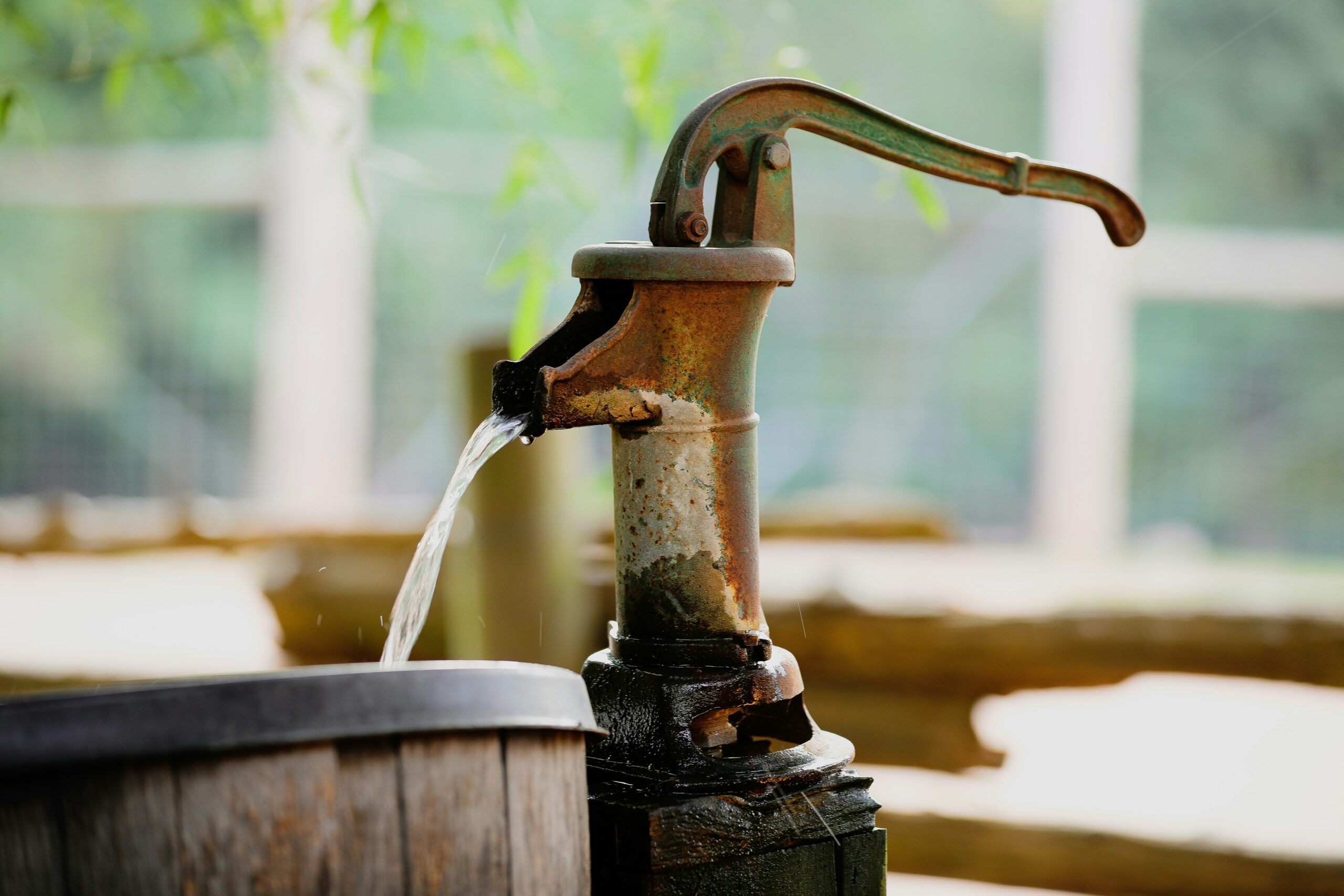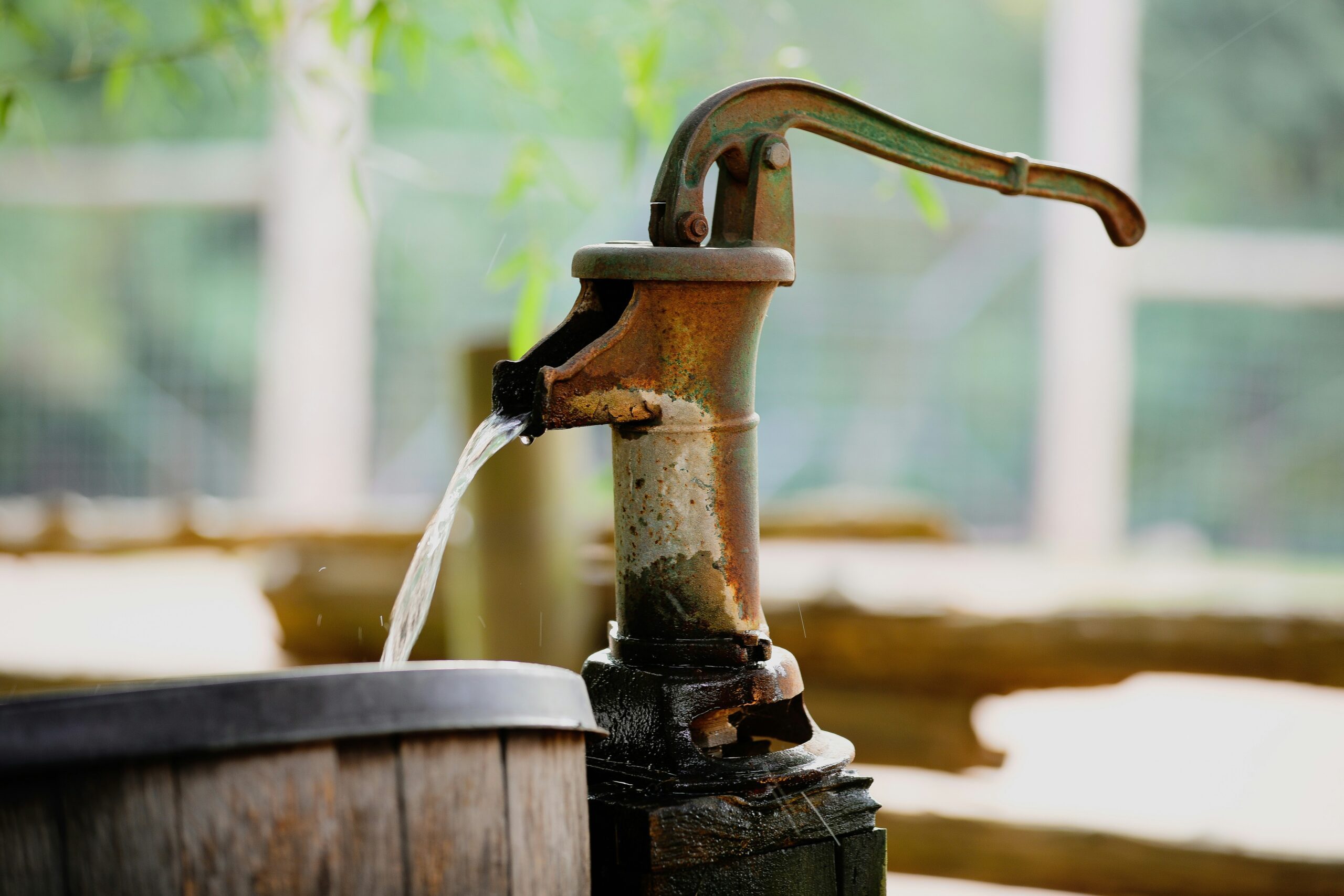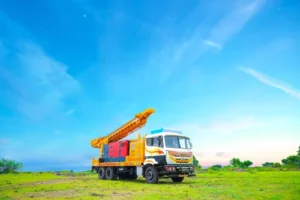
Introduction to Borewell Services
Borewell services, commonly referred to as well drilling, play a critical role in addressing water scarcity challenges faced by many regions, including Hyderabad. With increasing demand for freshwater resources due to population growth and urbanization, the significance of expert drilling solutions cannot be overstated. Borewells serve as a pivotal solution for accessing underground water, which is essential in meeting domestic and agricultural needs.
In essence, borewell services encompass the process of drilling deep into the earth to reach aquifers, which are natural underground reservoirs of water. These services require advanced technology and skilled technicians to ensure efficient operation, safety, and sustainability. Proper well drilling involves several steps, including site assessment, the selection of drilling methods, and the actual drilling process. Each step is crucial to ensuring that the borewell is productive and complies with local regulations.
The importance of borewell solutions is heightened in regions like Hyderabad, where surface water sources like rivers and lakes may not always be reliable. As a result, many households and businesses have turned to borewells as a sustainable water supply alternative. Engaging expert drilling services ensures that the borewell is designed and implemented correctly, ultimately maximizing water yield while minimizing environmental impact. Furthermore, professional borewell services contribute to the longevity and efficiency of the water extraction process, reducing the risks associated with poorly executed drilling projects.
The increasing population and corresponding water demand make the need for reliable borewell solutions more pressing than ever. As we explore the various aspects of well drilling in Hyderabad, it is imperative to recognize the vital role these services play in ensuring access to clean, safe water for all residents.
Understanding Well Drilling Techniques
Well drilling techniques are pivotal in the extraction of groundwater, and understanding the various methodologies employed in Hyderabad can aid in selecting the most appropriate one for specific geological conditions. Among the most commonly used techniques are rotary drilling and percussion drilling, each with its distinct advantages and limitations.
Rotary drilling is a prevalent method in well drilling, utilizing a rotating drill bit to penetrate the earth. This technique is particularly effective in challenging geological formations due to its ability to apply significant pressure and continuous rotation, which allows for deeper and more efficient drilling. One of the key advantages of rotary drilling is its speed; it can rapidly reach considerable depths, making it an ideal choice for borewell solutions where time is a critical factor. However, the technique can be less suitable in areas with loose, unstable soil, as it may lead to drill hole collapse.
Conversely, percussion drilling, also known as cable tool drilling, employs a heavy drill bit that repeatedly drops to break apart the ground. This method is often more appropriate in softer soil conditions, where rotary drilling may struggle. A notable advantage of percussion drilling is its ability to create a well that is less prone to caving in, which is beneficial in certain environmental settings. However, this technique tends to be slower and may require more frequent maintenance and manual intervention.
Both techniques also involve considerations of cost and equipment availability, factors that can influence the selection of drilling method. Ultimately, the choice between rotary and percussion drilling—or any other expert drilling method—hinges on comprehensive evaluation of the geological conditions, budget constraints, and the specific water needs of the area in question. By understanding these various well drilling techniques, one can make informed decisions in the quest for effective borewell solutions.
Choosing the Right Borewell Depth
When considering well drilling, selecting the appropriate borewell depth is critical to ensuring efficient water extraction. Several factors influence this decision, including local geology, water table levels, and the intended purpose of the borewell. Understanding these components can significantly enhance the success rate of drilling projects.
Local geology plays a paramount role in determining borewell depth. The geological formations in a particular area can drastically affect water availability and quality. For example, areas with rocky or dense soil may require deeper drilling to reach aquifers, while regions with sandy or loose soil might have accessible water at a shallower depth. Skilled drilling professionals often conduct geological surveys to assess subsurface conditions, which enables them to provide tailored borewell solutions.
Another crucial consideration is the current water table levels, which can fluctuate seasonally and over the years due to rainfall, climate changes, and extraction rates in the region. Monitoring these levels is essential since drilling below the water table ensures that the borewell can supply a consistent water flow. An expert drilling team will typically use both historical data and real-time assessments to identify the optimal depth, preventing issues such as dry wells.
Lastly, the purpose of the borewell must be taken into account. Whether the borewell is intended for domestic use, agricultural irrigation, or industrial applications will determine the required depth and diameter. For instance, a borewell meant for irrigation might need to reach a deeper aquifer than one intended for household consumption. Engaging with professionals who specialize in borewell solutions allows for a thorough evaluation of each factor, ensuring that the final drilling outcome is effective and sustainable.
Given these considerations, collaborating with experienced experts is essential for achieving the most favorable results in well drilling. Their knowledge will guide the decision-making process, leading to the successful establishment of a borewell that meets both immediate and long-term water needs.
The Role of Technology in Well Drilling
In recent years, the integration of technology into the field of well drilling has revolutionized borewell solutions, allowing for more efficient and reliable results. The advent of advanced drilling equipment has made it possible for drilling companies to adapt to various geological conditions with greater precision. Modern rigs, equipped with enhanced power and control systems, provide the ability to reach deeper water resources without compromising safety and efficiency.
Additionally, the utilization of geological mapping techniques has transformed the planning phase of well drilling projects. By employing sophisticated software and high-definition imaging, drilling professionals can accurately assess subsurface conditions. This technology aids in identifying the most suitable locations for boreholes, effectively reducing the risk of dry wells and increasing overall success rates. The analysis of soil and rock formations not only informs drilling strategies but also optimizes the selection of drilling methods and equipment.
The incorporation of sensors into drilling operations further enhances the ability to monitor and manage well drilling in real-time. These sensors can collect valuable data on parameters such as pressure, temperature, and flow rates, providing operators with crucial insights into the drilling environment. Armed with this information, teams can make timely adjustments to avoid complications, ensuring the drilling process remains on track while minimizing delays and costs.
Moreover, technology has simplified communication between field crews and experts, fostering collaboration and informed decision-making. The remote monitoring of drilling operations through advanced telemetry systems ensures that specialists can provide guidance even from afar. As a result, the combination of expert drilling techniques and new technological advancements underscores a significant shift in the way well drilling services are conducted. This evolution not only enhances operational efficiency but also ensures that water sourcing solutions remain viable for various applications.
Regulations and Permits for Borewell Drilling
When undertaking well drilling in Hyderabad, it is crucial to be aware of the legal framework governing borewell solutions. These regulations are established to ensure the sustainable use of groundwater resources, protect the environment, and safeguard public health. Before commencing a borewell drilling project, it is mandatory to obtain several permits from local authorities. These permits typically include the submission of an application that details the specific location, depth, and intended use of the borewell.
Local authorities, such as the groundwater department or municipal corporations, play a significant role in overseeing and regulating borewell projects. They are responsible for assessing the potential impact of drilling activities on the local environment and groundwater levels. This evaluation enables them to determine whether the proposed drilling aligns with regional water management goals. Failure to comply with these requirements can lead to serious consequences, including financial penalties, forced decommissioning of the borewell, or legal action against individuals or organizations responsible for drilling without proper authorization.
Additionally, borewell solutions in urban areas may be subject to stricter zoning laws and regulations due to the dense population and increased demand for groundwater resources. It is essential for individuals or companies engaged in expert drilling to stay informed about any changes in local policies regarding borewell installation. This diligence not only protects legal interests but also contributes to responsible water management practices in the community.
In conclusion, adhering to the regulations and permits associated with borewell drilling in Hyderabad is critical for maintaining compliance and fostering sustainable water resource management. Engaging with local authorities and understanding the legal landscape can aid in successfully navigating the process of applying for and securing the necessary permits for drilling. By doing so, individuals and organizations can ensure their drilling activities contribute positively to the environment and community.
Factors to Consider When Hiring a Borewell Contractor
Choosing the right borewell contractor is crucial for ensuring successful well drilling and long-term satisfaction. In Hyderabad, where numerous companies offer various borewell solutions, it is essential to consider several key factors before making a decision.
First and foremost, experience plays a vital role in determining the quality of service a contractor can provide. It is advisable to select a contractor with significant experience in the industry. An experienced contractor will have a deeper understanding of local soil conditions and the best drilling techniques required for successful borewell installation. They are more likely to anticipate challenges and efficiently address potential issues that may arise during the drilling process.
Additionally, the contractor’s reputation should not be overlooked. Researching online reviews and seeking recommendations from previous clients can provide insight into the reliability and professionalism of the contractor. A strong reputation often correlates with quality service, and a company that values customer satisfaction will likely ensure your well drilling project is handled with utmost care.
Another important consideration is the quality of equipment used by the contractor. Modern and well-maintained drilling equipment is essential for achieving efficient and successful borewell solutions. Contractors utilizing outdated or poorly maintained machinery are likely to encounter delays and complications, impacting the overall integrity of the project.
Customer service is equally significant in the decision-making process. Effective communication between the contractor and the client can make a substantial difference in managing expectations and facilitating a smooth drilling process. A contractor who is responsive and open to discussions will ensure that your well drilling needs are met prioritizing your satisfaction.
Lastly, evaluate the costs involved. While searching for an affordable contractor is valid, it is important to weigh the quality of service against the cost. Opting for the cheapest option may lead to subpar work and unforeseen expenses in the future. Balancing cost with experience, reputation, and service quality will guide you toward making a sound decision.
Costs Involved in Borewell Drilling
Understanding the costs associated with borewell drilling services in Hyderabad is crucial for individuals and businesses considering such projects. Several factors contribute to the overall expense, including drilling depth, equipment rental, and labor costs. Each of these elements plays a significant role in determining the total investment required for well drilling.
The drilling depth is one of the primary factors influencing cost. Generally, the deeper the borewell needs to be drilled, the more expensive it becomes. Deeper wells require advanced drilling equipment and additional time, which can significantly raise the overall cost. It is essential to evaluate the geological conditions and water table levels in the location where drilling is planned, as these factors dictate required depth and complexity.
Equipment rental is another critical aspect of the expenditure involved in borewell solutions. Professional well drilling services usually employ various machinery, such as rotary drilling rigs, which are necessary for efficiently reaching the required depth. The rental of these specialized tools, coupled with necessary backup equipment, can lead to increased costs. It is advisable to gauge whether the service provider includes these expenses in their quoted price or if they are billed separately.
Labor costs also make up a substantial portion of drilling expenses. The expertise of the crew matters, and when engaging expert drilling services, it often reflects in their rates. Skilled professionals also ensure that the job is done correctly and safely, potentially avoiding costly errors later in the project lifecycle.
Finally, it is prudent to consider potential additional expenses such as hydrogeological surveys, permits, and post-drilling maintenance. These expenses can accumulate quickly, influencing the total budget significantly. Therefore, assessing all potential costs beforehand will aid in better financial planning for borewell projects.
Maintenance and Care of Borewells
Regular maintenance of borewells is crucial for ensuring their longevity and operational efficiency. Well drilling systems are subject to various environmental and mechanical stresses that can lead to reduced performance over time. Taking proactive steps in maintaining your borewell can prevent costly repairs and extend the life of the system.
One of the primary methods of maintaining a borewell is regular inspection. Homeowners should frequently check the well for physical signs of wear, such as rusting components, corrosion, or sediment accumulation. Monitoring the water level is also essential; a sudden drop could indicate a problem with the borewell that requires immediate attention. Furthermore, testing the water quality at least once a year can ensure that the water remains safe for consumption and free from pollutants.
Another critical aspect of borewell maintenance is the periodic cleaning of the well. Over time, debris, minerals, and biological growth can accumulate, affecting water flow and quality. Utilizing expert drilling services can help in performing this cleaning efficiently and safely. The use of specialized equipment for desilting and disinfection is recommended for maintaining optimal condition. Additionally, sealing the upper sections properly prevents surface contaminants from entering the well water, which is a common issue in neglected borewells.
Homeowners should be vigilant for signs of problems such as unusual changes in water quality, a noticeable decrease in water pressure, or a sudden increase in energy costs linked to pump operations. When any of these symptoms arise, it is advisable to consult with professionals who specialize in borewell solutions. They can conduct a thorough assessment and recommend necessary repairs or upgrades to ensure the system operates at peak efficiency.
In conclusion, regular maintenance of borewells is not only beneficial but essential for ensuring sustainable water access. By following appropriate care tips and engaging expert drilling services when necessary, homeowners can protect their investment and ensure they have reliable water sources for years to come.
Conclusion and Final Thoughts
As we have explored throughout this blog post, the significance of expert borewell solutions cannot be overstated, particularly in the context of well drilling in Hyderabad. Engaging professional services ensures that the process is executed with precision, adhering to safety standards, and employing the best practices in the industry. The complexities of well drilling, including site evaluation, water table assessments, and the installation of appropriate infrastructure, require the expertise that only seasoned drilling professionals can provide.
Moreover, utilizing expert drilling services can greatly enhance the quality of the borewell, potentially leading to more sustainable water sources for residential or agricultural use. By relying on professionals who have honed their skills through experience, individuals and businesses can avoid common pitfalls associated with amateur drilling, such as inadequate water yield or structural issues. The consideration of proper borewell solutions is essential not only for immediate needs but also for long-term water management and conservation.
In conclusion, it is crucial for those in need of well drilling to prioritize professional assistance when embarking on their projects. Whether for a new borewell or the maintenance of an existing one, the right expert can make a significant difference. We encourage you to reach out for consultations or quotes to discuss the most effective strategies for your specific requirements. Taking this proactive step ensures that your investments in borewell solutions are both effective and reliable, ultimately contributing to better water access and management in the long term.


